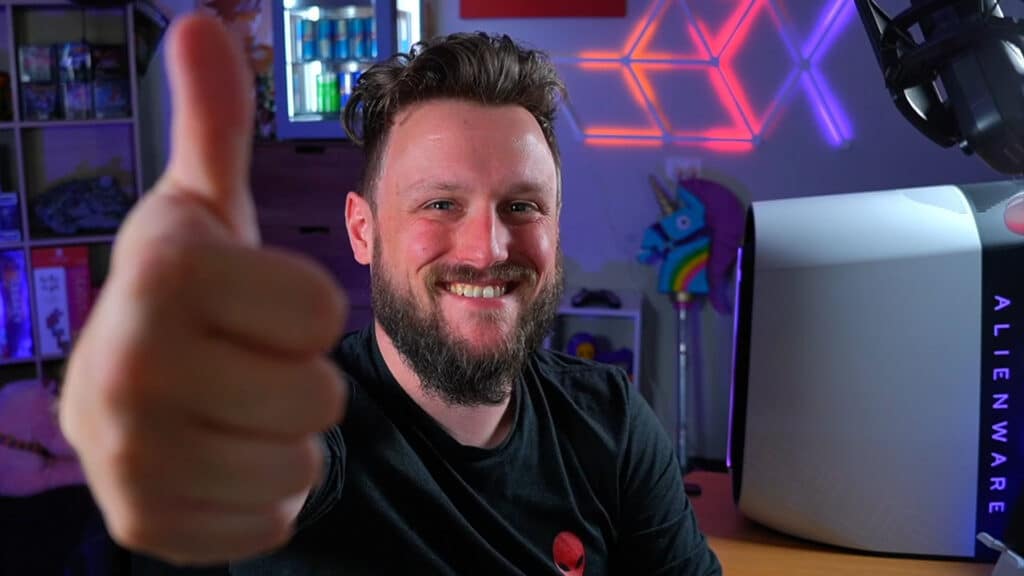Today at GDC (Game Developer’s Conference), Google announced the hat that they’re throwing into the gaming ring with Stadia. It’s a cloud-based game streaming service which will allow gamers to access a variety of games. All with no download times from a dedicated server belonging to Google.
This sounds amazing at first glance, sure. And, it is, in a lot of ways. During their GDC conference, they showed the service being switched seamlessly between desktop PCs, TVs, phones and tablets. In theory, the service could even run on your Grandma’s toaster of a PC thanks to the fact that the games, due to running from dedicated servers elsewhere, won’t take the hardware of your poor old potato of a computer into consideration.
Of course, as with any new fancy piece of technology delivered at a conference, they didn’t give us all the details. Of course, despite it being promised to release in 2019. And Australia, unfortunately, isn’t even included in that initial release so we have an even less solid release date than the rest of the world.
So I think it’s worth positing a few questions about this service and what it means compared to standard releases.

Will we own any games?
We don’t know as of yet whether we’ll be paying one lump sum for a subscription-based service (like Microsoft’s Game Pass or a kind of Netflix but for video games) or if we’ll be buying games individually. Either one of these questions raises its own concerns.
For example, say it’s a lump sum for a Netflix-style subscription. This is fine on its own, but it also means that players are never going to ‘own’ any of the games, and favourites might be removed from their library at any given time, which isn’t uncommon for streaming services. Whether it will rotate a select amount of titles or have a library of dedicated ones is another question.
If we had to buy the games individually, how far would our ownership of them extend? Again, they could be removed at any time. While this is already true for platforms like Steam, these platforms still have a stronger sense of ownership insofar as we are required to download the games, meaning at the very least we have the files for them on a computer/console.
Third party games, perhaps this isn’t as much as an issue. We can buy these games on other platforms and own them that way if we’re denied access on the Stadia. But what does it mean for any possible Stadia exclusives? What happens if the platform is a flop, servers go down, and we lose access to any of our save files and purchases? Will a way to download our games and data become available in the future, to ensure we retain some kind of ownership?

So what about mods?
Related to the last point, with the games running off a remote server, what does that mean when it comes to a possible modding scene? One of Google’s selling points for the Stadia is that hackers and the like won’t be an issue with the service because they won’t have access to the files. Which is awesome.
But, does this come at the high price of locking out people who want to create and share custom content? Modding is one of gaming’s most popular past-times, with developers like Bethesda even releasing tools to facilitate modders and share their content whether that’s on a console or a PC. Other modders use more creative methods to create and share content, such as various mods for the Nintendo Switch’s The Legend of Zelda: Breath of the Wild but are no less creative or, perhaps one would argue, necessary to the culture of gaming.
Will Google release their own tools that will allow people at least some kind of access to the files they need to create mods? Or will we just have to play each and every game in its vanilla state? Which naturally isn’t the end of the world but still means gamers will be missing out on a certain level of content that other platforms offer.

How good does the connection need to be?
Australia is a land of internet troubles. Perhaps it’s one of the reasons we’re not a designated launch country for the Stadia. We have a history rife with internet issues, I’m sure that if you haven’t had troubles with the NBN, someone you know has. Our speeds were never spectacular. Best case scenario: a user lives in the city or the suburbs, has a fairly solid connection and can use the Stadia streaming service with no problems.
But rural users, or users who can’t afford the higher speeds, may still be left in the dark. Living in a rural area, I can stream Netflix without too much trouble on a 50mb connection. But could I stream Stadia games? Could someone on a 25mb connection stream these games? Streaming a game would, I assume, be far more intensive than streaming a movie. Even the controller inputs are wirelessly sent back to Google’s streaming server so nothing at all will be stored locally, and every last input will be streamed.
It sounds pretty intensive, to say the least.
Will we lose everything if there’s a hiccup in the connection? Will we be able to store anything locally at all, to ensure at least some kind of offline functionality for users whose connection might not be as reliable?

Can it run Doom?
I mean. Yeah. It can in a sense. It’s getting support for Doom Eternal, which is great and all, but I mean can it run Doom (1993). What’s it going to be like in regard to support for older games? Will it only run the latest titles, or will we have access to a catalogue of older titles too? I’d love to play some DOS classics, or perhaps something from Atari, but at the moment we really don’t know anything about the games other than it will have some recent titles in addition to Google having a dedicated in-house development team to make their own games for it.
But is it really a gaming service unless you can play Doom on it? The benchmark for every piece of technology?
We’ll wait and see. In the end, that’s all we can do. We’ll get our answers sooner or later, I’m sure, but there’s a lot to think about given there’s never been a dedicated cloud-based service for games like this. You can colour me excited but very cautious.
Related
- Google rumoured to release a cloud based gaming console
- Microsoft announces a new cloud gaming division




